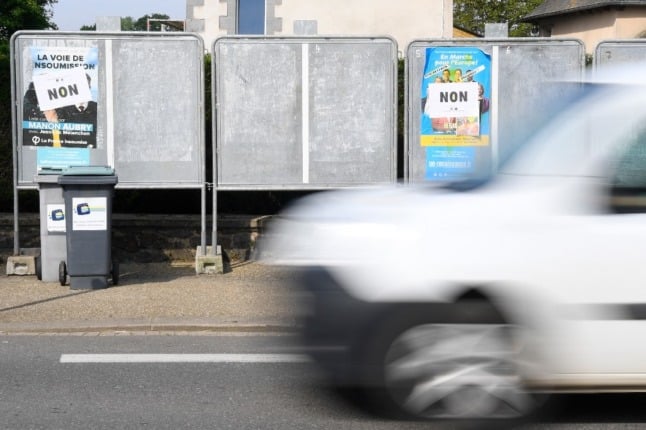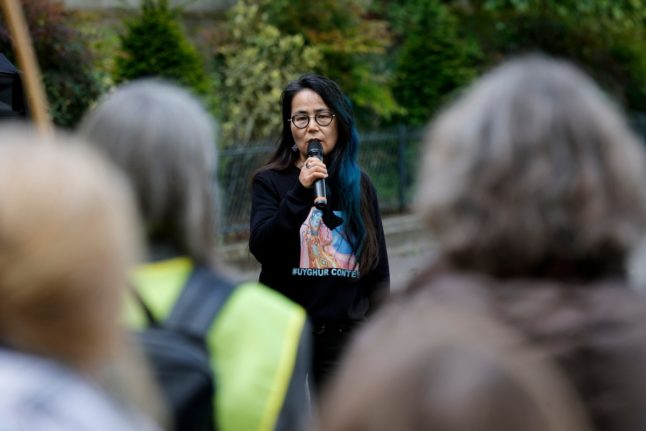It’s regional election time in France – voters head to the polls on June 20th and again on June 27th. Up for grabs are seats and control of the regional councils in metropolitan and overseas France – including the Corsican Assembly, Assembly of French Guiana and Assembly of Martinique – for the next six years.
The billboards are a vital part of the election process. They will pop up again next year for the Presidential elections and at every municipal, regional and European election.
READ ALSO Five minutes to understand: The 2022 French presidential election
They’re for election posters and France has some strict and extremely precise rules on election publicity material.
The boards are installed by the local authority outside voting stations a few weeks prior to the first round of voting. Each candidate, pair of candidates or list of candidates, in the election is allocated an equal space on these boards for election posters.
In order to be completely fair, the ordering of space for candidates on the boards is decided by a draw – in the regional elections, this draw takes place in the préfecture.
Town halls can install billboards at other locations, too. The maximum number of billboards per town is fixed according to the number of voters.
Candidates can also use free posting (affichage libre) spaces around town during the campaign period and in the six months leading up to the election.
According to the Electoral Code, candidates who put their posters outside these legally sanctioned areas or periods risks a fine, and their posters can be taken down.
The panels must be large enough to allow for the correct display of at least: a small poster measuring 297mm x 420mm and a large poster measuring 594mm x 841mm.
In the case of a second round of voting, the posters of candidates no longer involved in the ballot should be removed by the Wednesday between ballots.
French candidates and parties receive limited public subsidies to cover expenses in their election poster campaigns. Funding is always provided after each election round, in the form of reimbursements for incurred expenses.
There are also rules on allowable colours in posters – for example: the French bleu-blanc-rouge combination is not permitted unless they are the colours of the party logo. They should not be printed on white paper, unless they include writing or colour pictures.



 Please whitelist us to continue reading.
Please whitelist us to continue reading.
Member comments